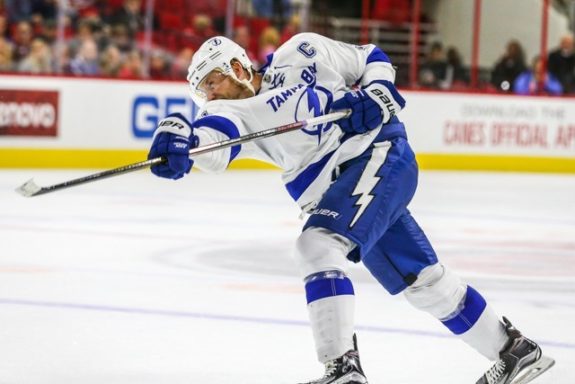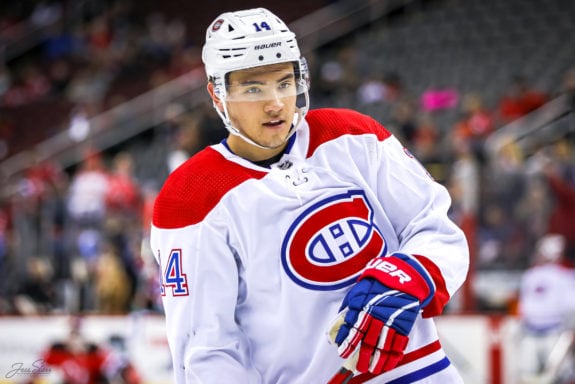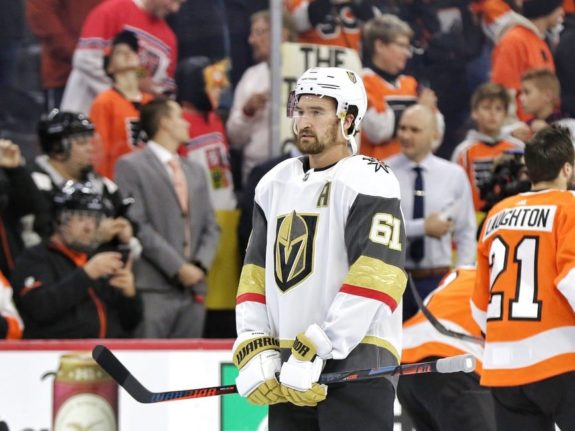The Montreal Canadiens entered Game 1 of the Stanley Cup Final as massive underdogs to the defending champions, the Tampa Bay Lightning. At the end of the game, the Canadiens did nothing to show they shouldn’t be underdogs, as Tampa Bay came away with a convincing 5-1 victory and the early series lead.
The Canadiens looked nothing like the club that dispatched the NHL’s second-best regular-season team, the Vegas Golden Knights, in six games. They looked disorganized and overwhelmed. These are some key takeaways from that disappointing Game 1 performance.
Special Teams
This takeaway is one that was the least painful to watch. The one bright spot is that the penalty kill (PK) still looked effective. The Habs PK, which went 3 for 4, gave up a late goal, the Lightning’s fifth of the night, in garbage time which came as a 5-on-3 power play (PP) was ending. Until that point, the Canadiens were able to handle the attempts to generate cross-ice passes by keeping them high and to the outside, allowing Carey Price to see the shot. The one goal came off a miscue at the goalmouth, allowing Steven Stamkos to get a one-timer off a cross-seam pass low in the zone.

The Canadiens’ PP however had very few bright spots. It didn’t get pucks to the net, nor did it have any sustained netfront presence. To Tampa Bay’s credit, their PK units were very aggressive in attacking the puck carrier and keeping pucks to the outside, which in turn rushed the Canadiens PP units. To counter this, the Habs will need to create small-area odd-man plays lower in the zone – this would open up space at the blue lines, allowing them to generate passing and shooting lanes.
Overwhelmed by the Moment
By their own admission, the Canadiens played a poor game:
“The positive is we didn’t play our best game, we know we can get better. I think they’re always a team that plays well and definitely creates off mistakes that you make. So by us playing better, and managing the puck better and maybe limiting those mistakes and creating a little bit more ourselves, I think we have a good way to go up and that’s going to be the positive out of it.”
Luke Richardson (In The Habs Room, ‘We know we can get better, Richardson says’, Pat Hickey, Montreal Gazette, 29 June 2021)
The Canadiens were unable to get the line matchups they wanted and it looked like Nick Suzuki’s line was overmatched by Tampa Bay’s top line pivoted by Brayden Point. This had more to do with experience than anything else as Suzuki and his linemate, Cole Caufield, looked nervous and rushed plays which in turn, allowed Tampa to generate turnovers.

With the first game of the series over, the Habs roster as a whole will need to adjust and not give the Lightning too much room to maneuver. By returning to the game plan seen in the first three rounds of these playoffs, where the Canadiens stretched the zone by going north and south, they can limit the turnovers at the two bluelines by keeping the Tampa defenders in their view, in front of them. The attempts at playing the east-west style game – trying to force long cross-ice passes through traffic gave Tampa far too many opportunities to feed their transitional offence.
Undisciplined Play
The Canadiens nervous energy translated to a much less disciplined group, not just in terms of penalties, but also in the execution of their game plan. Luke Richardson addressed this in his press conference availability the day after Game 1.
“We will bring in our adjustments to our game plan and we’re counting on executing it better.”
Luke Richardson
As mentioned above, the Canadiens’ pass selection was a key factor in Tampa creating offence off of turnovers. The roster as a whole will need better discipline in game management and execution to offset Tampa’s experience and skill advantages.
Latest Canadiens Content:
- Every Canadiens Player’s 2024 Christmas Wish List
- 3 Takeaways From the Canadiens’ Narrow 5-4 Loss to the Blue Jackets
- Canadiens Must Exercise Caution with Laine in Wake of Latest Injury
- NHL Rumors: Canadiens, Blue Jackets, Sabres, Lightning, Panthers
- Blue Jackets Mount Third Period Comeback in Win Over Canadiens
Also, the Habs will need to refrain from trying to send messages to the Lightning after the whistle. Battles during gameplay for positioning are one thing, but the consistent wrestling matches after the play can lead to distraction as the Canadiens begin looking for retribution for any insult or injury. By keeping the focus on the gameplay itself, it can lead to Tampa becoming frustrated and having no outlet for that frustration and may lead to mistakes. This was seen as the Semifinal series versus Vegas wore on with normally dominant players like Selke Trophy finalist Mark Stone making uncharacteristic mistakes and slamming sticks in frustration.

If the Habs can return to their game plan of controlling the pace of the play and slowing it down to negate the speed of Tampa’s highly skilled forward group, this will lead to the Canadiens having better puck management, which in turn leads to them having puck control for greater periods of time, which is essential to them not only defending, but also generating offence as they are a volume shooting team. Tampa Bay is the best team the Canadiens have faced all season, and without adjustments, it may not be a long series.